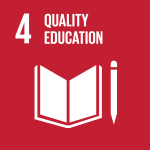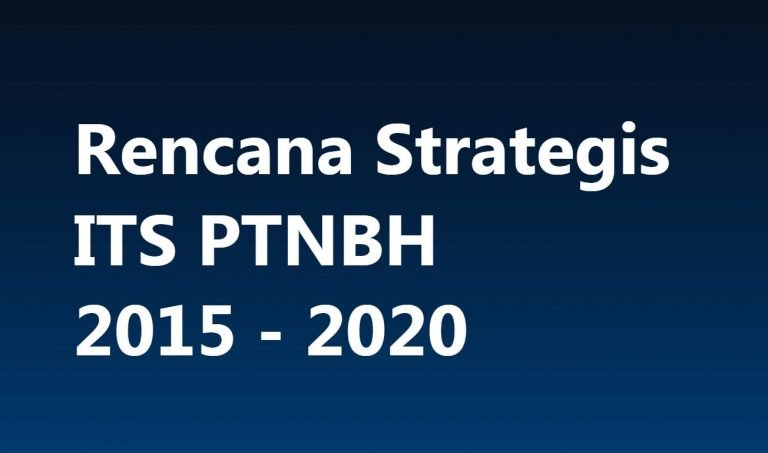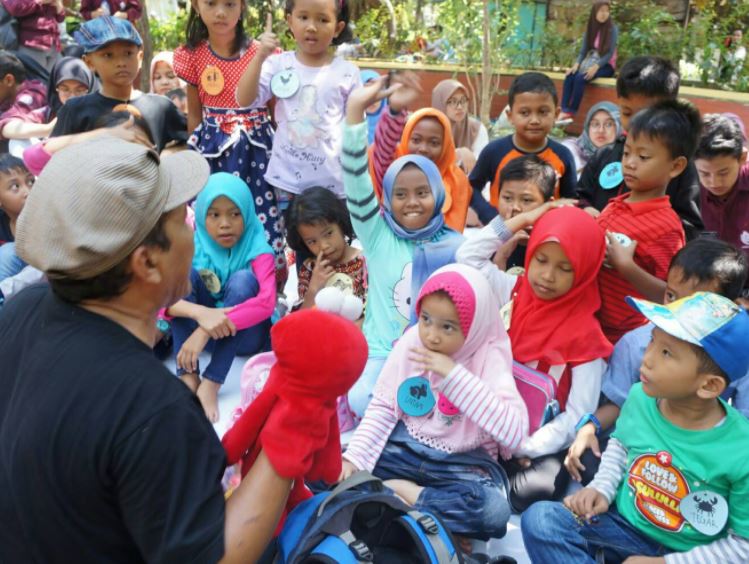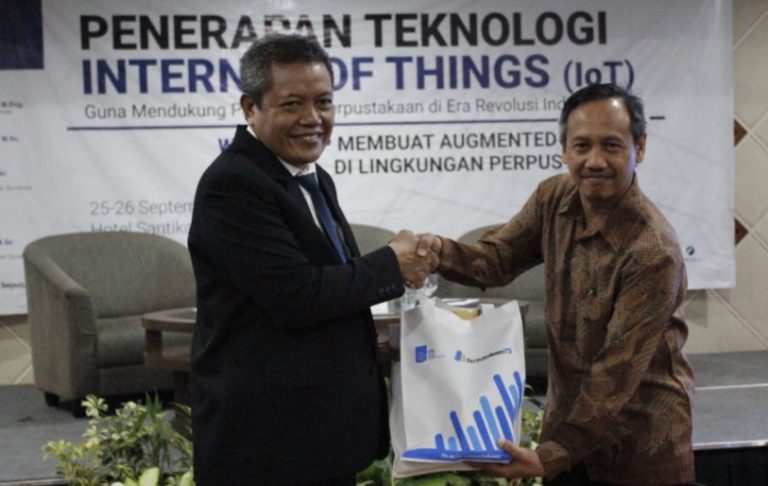“A high-quality education should be an area where universities excel. Education is a key gateway out of inequalities, especially multi-generational ones. In addition to improving quality of life, access to inclusive education can help equip locals with the tools required to develop innovative solutions to the world’s greatest problems.”
(THE Impact Rankings)
SDG 4: QUALITY EDUCATION
Lifelong Learning Measures
ITS Library Member Registration
The openness of literacy plays a crucial role in advancing knowledge development. ITS Library opens member registration for public, not only ITS students, lecturers and non-academic staffs, but also for non-academic people outside ITS. The library also provides online services for its members, where registration of library members can be done offline and online.

ITS Provides Free Courses through ITS Tekno Sains Academy
Free courses empower individuals to explore diverse subjects, enhance their professional skills, and pursue personal interests, fostering a culture of continuous education. Furthermore, they bridge gaps in education, enabling individuals to upskill, reskill, and adapt to the rapidly changing demands of the job market. By providing open access to quality educational content, free courses contribute to societal advancement, promoting inclusivity, and fostering a more knowledgeable and skilled global community. ITS has program called ITS Teknosains Academy that provides educational resources in various topics.
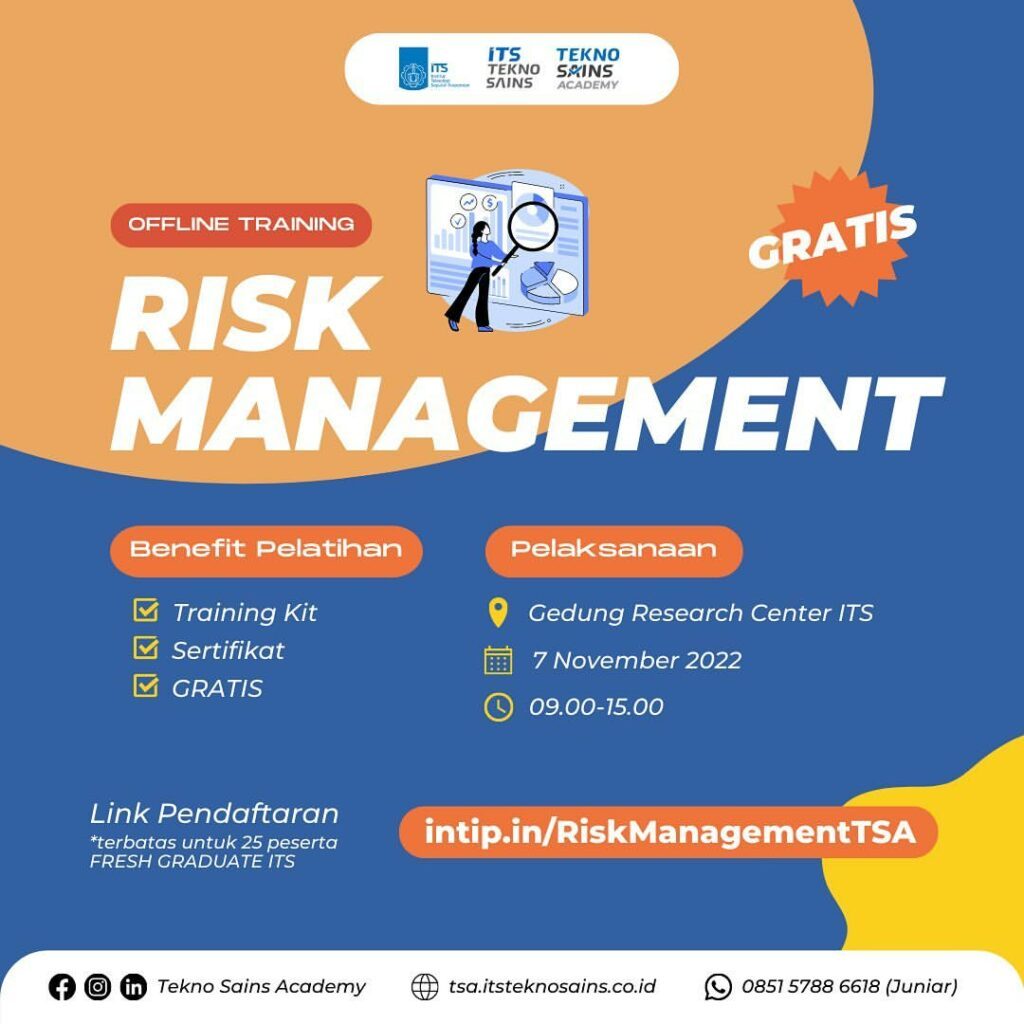
Fun Bahasa Indonesia and Cultural Course Course leading to certificate and award
ITS has launched a program for learning Indonesian language and culture for the global community interested in it. The program covers basic Indonesian language skills and knowledge of culture, including a city tour of Surabaya, Indonesian history, traditional activities, and a campus tour of ITS. This program is designed to provide participants from various countries with a comprehensive and immersive learning experience.
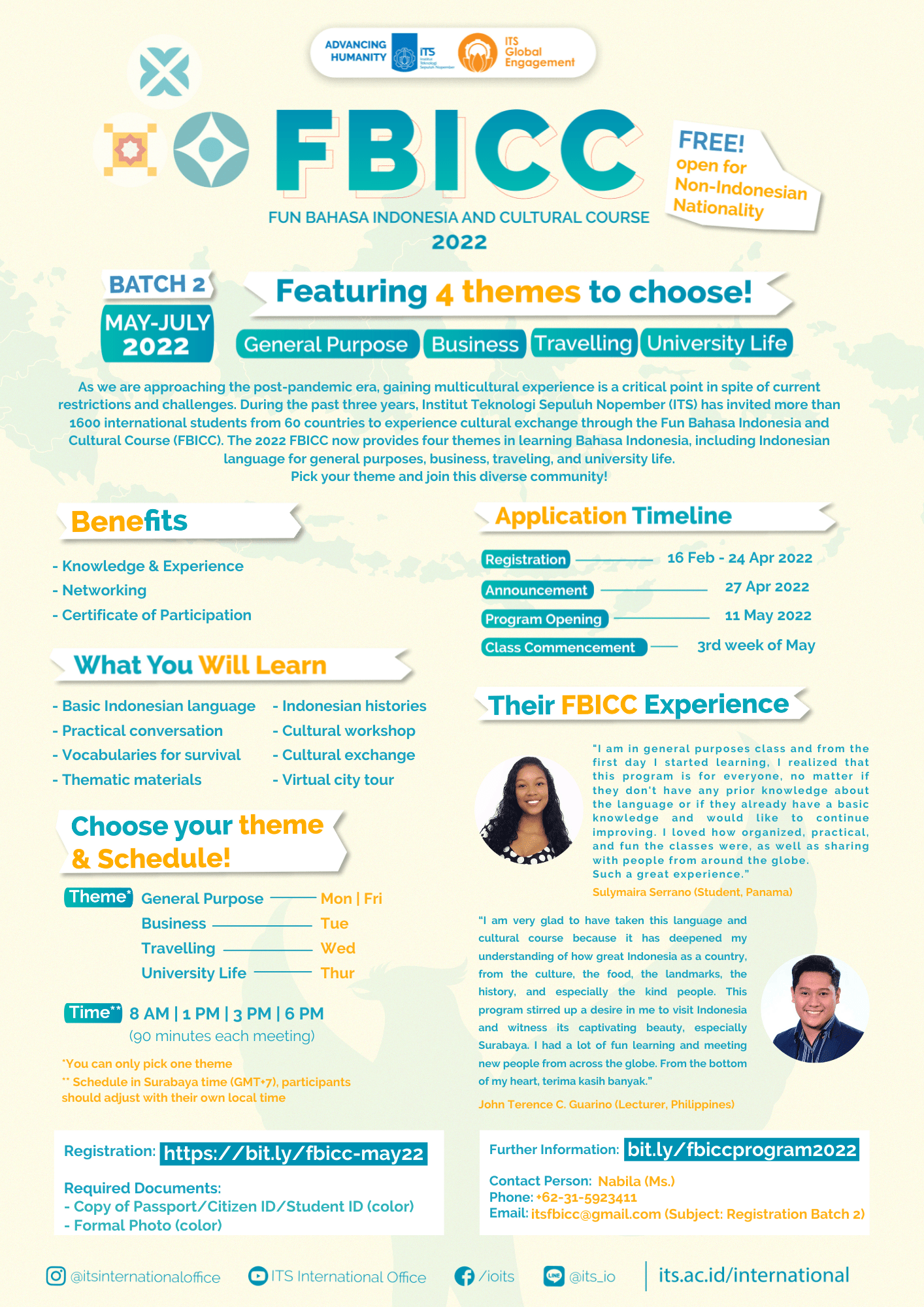
Teacher Training Festival
The need for education is not only important for students but also for teachers to develop their skills. In an effort to enhance the capacity of high school teachers in preparing students to face the challenges of global competition and technological advancements in the era of the fourth industrial revolution, ITS and the United States Consulate General, in collaboration with Science Hunter Indonesia (SHI), are organizing a specialized training program for high school teachers.
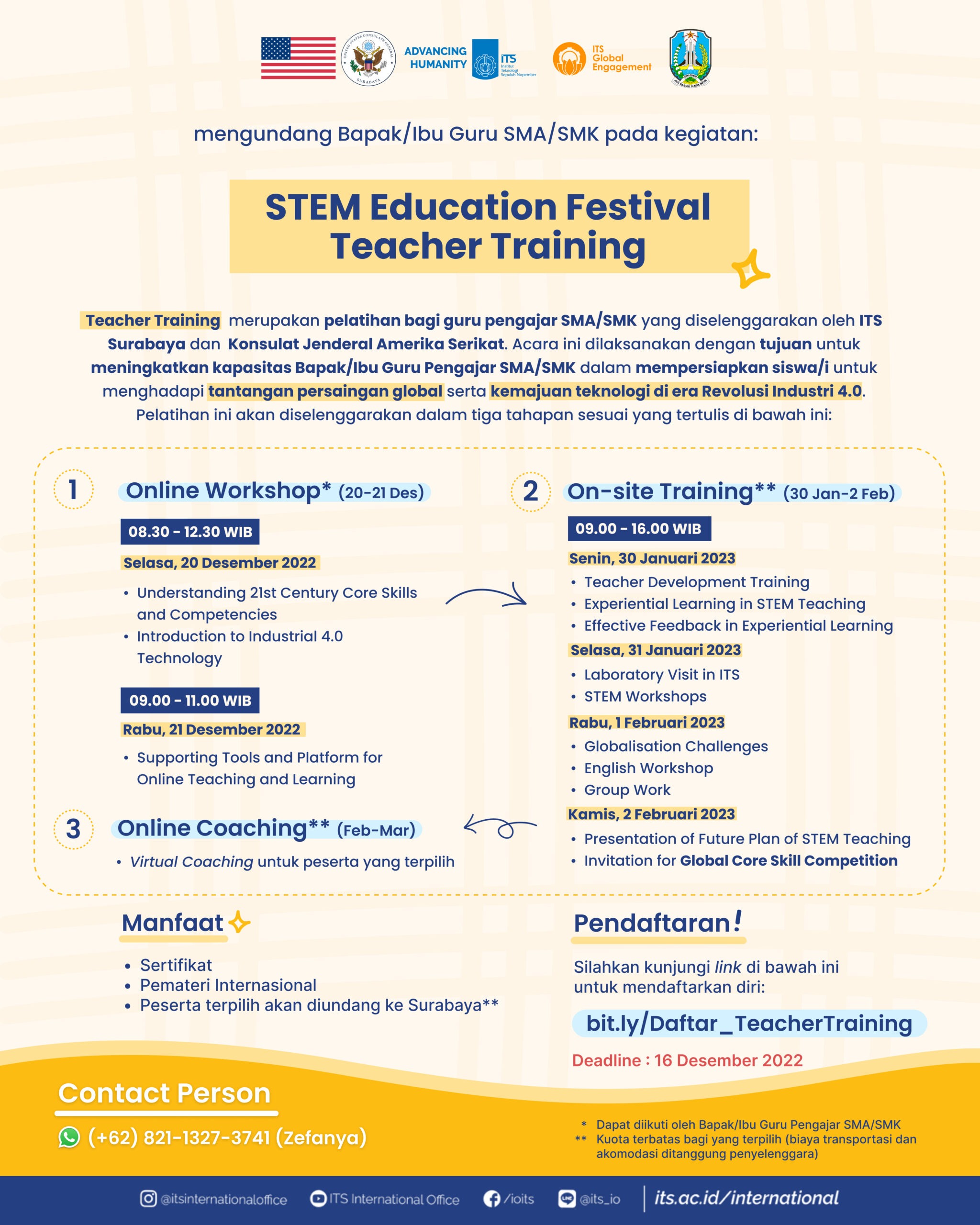
ITS Tekno Sains Academy
Free courses empower individuals to explore diverse subjects, enhance their professional skills, and pursue personal interests, fostering a culture of continuous education. Furthermore, they bridge gaps in education, enabling individuals to upskill, reskill, and adapt to the rapidly changing demands of the job market. By providing open access to quality educational content, free courses contribute to societal advancement, promoting inclusivity, and fostering a more knowledgeable and skilled global community. ITS has program called ITS Teknosains Academy that provides educational resources in various topics.
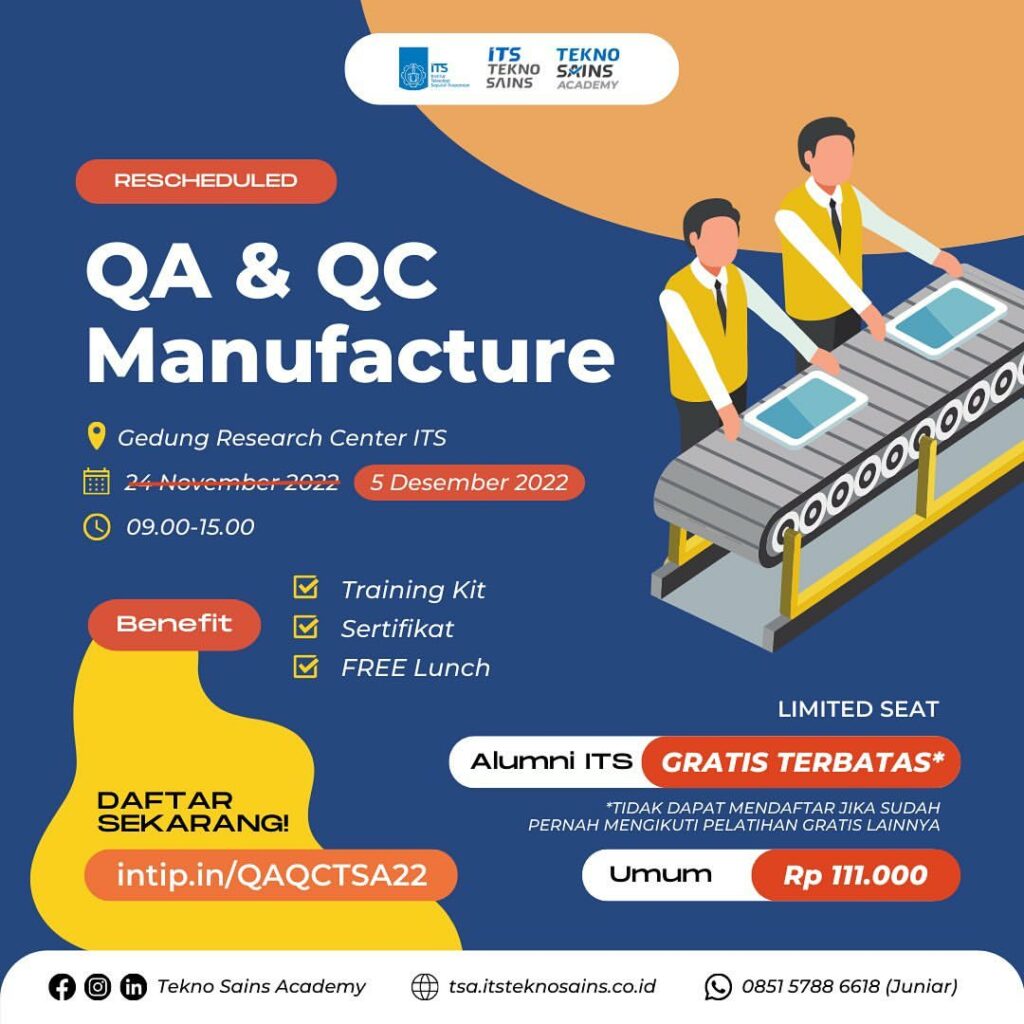
FBICC 2022
Institut Teknologi Sepuluh Nopember (ITS) proudly introduces the Fun Bahasa Indonesia and Cultural Course (FBICC), a unique and immersive program designed to enrich the cultural experience of international students. Rooted in Indonesia’s vibrant traditions and diverse heritage, FBICC at ITS offers a dynamic platform for students from across the globe to delve into the fascinating world of Bahasa Indonesia and the country’s rich cultural tapestry.
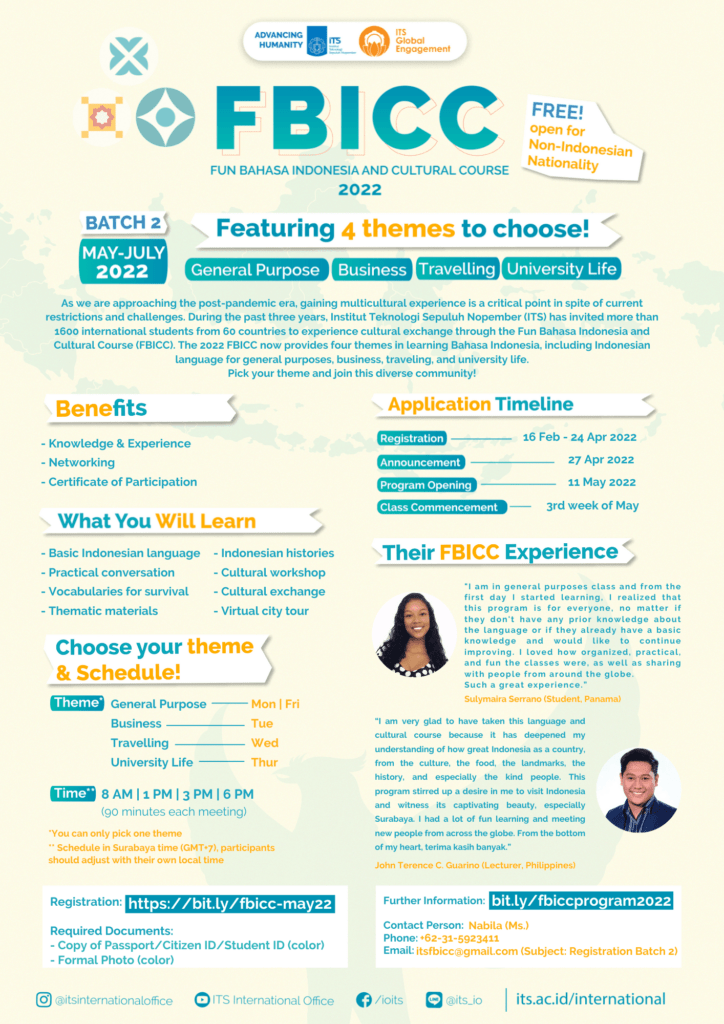
Empowering SSC Children, HMS ITS Holds Social Visit
Every child deserves the right to an education because they are all potential members of the country’s future generation, regardless of social status. Thus, through the HMS Social Visit activity (Kasih), the Civil Engineering Student Association (HMS) Institut Teknologi Sepuluh Nopember (ITS) empowered the children of the Save Street Child (SSC) Surabaya community with educational outreach activities.
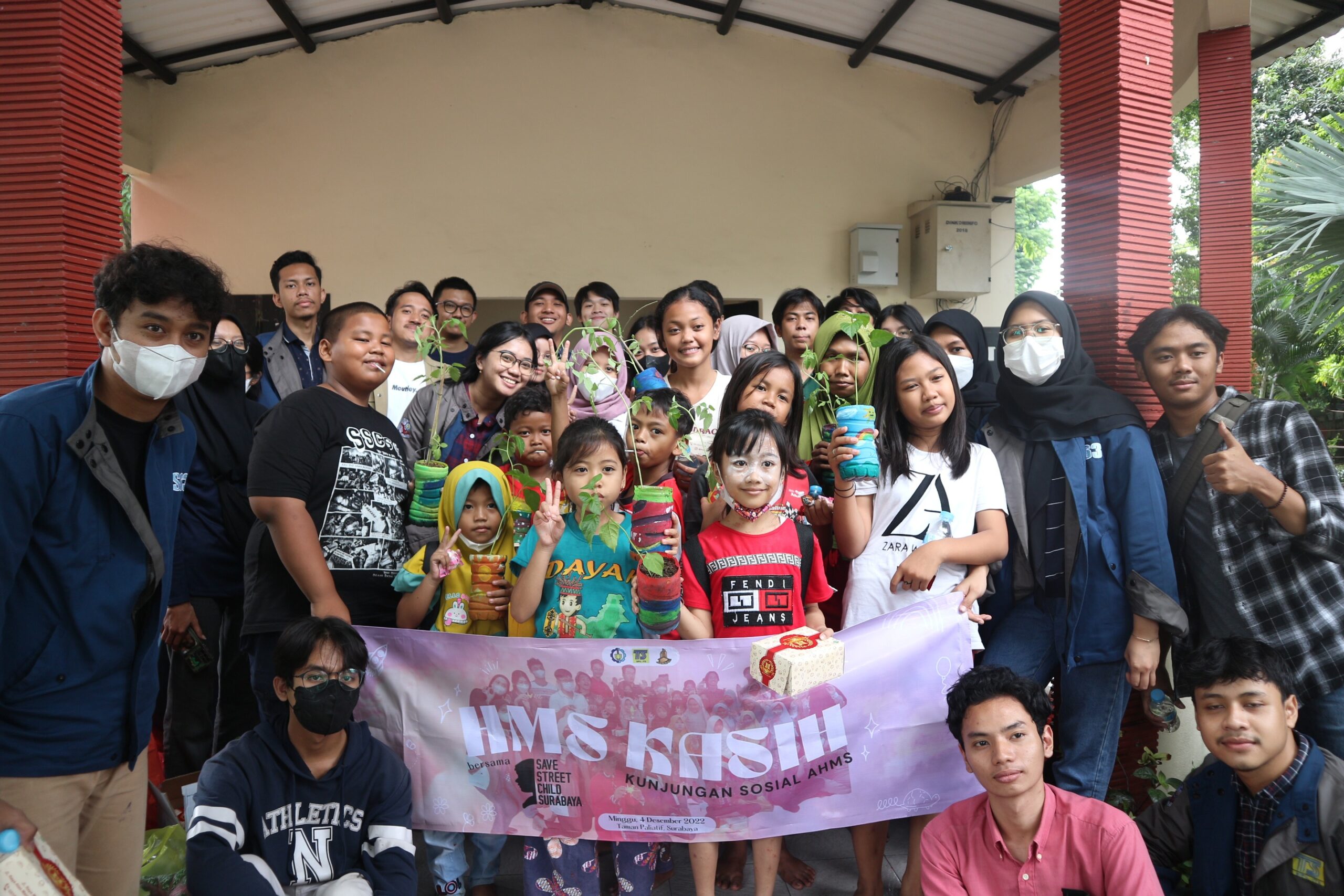
Increasing Education, ITS Mengajar Targets Surabaya Children
Institut Teknologi Sepuluh Nopember (ITS) is still committed to helping the country’s youth receive an education. By educating kids in the Surabaya area, ITS students are contributing to the advancement of education outside campus through the ITS Mengajar for Surabaya program in 2022. The ITS Student Executive Board (BEM) initiative this year places more of an emphasis on study residences in the Surabaya area.
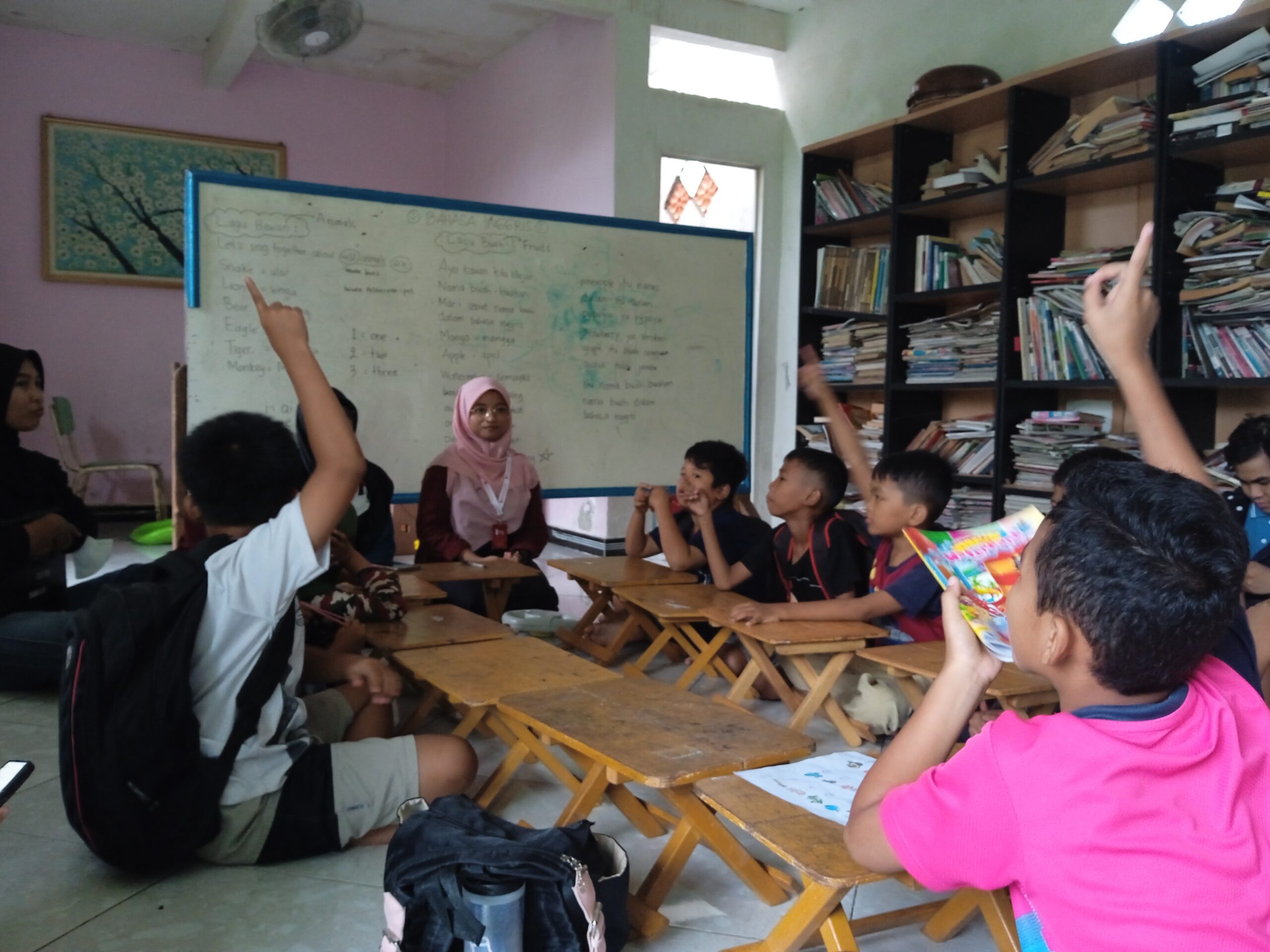
Cultural Camp
The Cultural Camp is a regular event held every semester. The Cultural Camp aims to acquaint international students of ITS with local culture, traditions, and wisdom, concurrently with engaging in community service initiatives. ITS collaborates with several universities from various cities across Indonesia to host a diverse range of Cultural Camps featuring captivating topics and concepts. International students will have the opportunity to gain a broader understanding of Indonesia and immerse themselves firsthand in the various distinctive cultures across different regions. Besides, the local community will gain educational activities from the participants of the Cultural Camp.
Rector Statement Letter to ITS’ Commitment on Achieving Sustainable Development Goals (SDGs)
ITS with its “Advancing Humanity” motto is committed to contributing to the achievement of SDGs by becoming a sustainable and environmentally friendly campus. The commitment is shown by the establishment of the Rector’s Statement Letter in achieving the Sustainable Development Goals. Explicitely, on Chapter 1 Point a.
Regulation of Academic Senate No. 6 of 2017 concerning Policy Direction of ITS Students Development, specifically on page 8 (5.9. Field of Lifelong Learning Development
ITS is aware of the importance of lifelong learning, as it becomes a main issue within the autonomous public universities in Indonesia. ITS provides a lifelong learning system to strengthen a more flexible academic atmosphere and to build competence that enhance performance not only for ITS students, but also for the general public, so that it can increase the competitiveness of national human resources. This strengthening is done not only through academic programs by preparing a more flexible education system, but also in training and apprenticeship activities. Policies related to lifelong learning are written on Regulation of Academic Senate No. 6 of 2017 concerning Policy Direction of ITS Students Development, specifically on page 8 (5.9. Field of Lifelong Learning Development).
SDG 4 IN NUMBERS
4,301
Number of Graduates in Most Recent Year
5,848
Number of Students Starting a Degree
N/A
Number of Graduates with Teaching Qualification
3,774
Number of 1st Gen Students Starting a Degree
N/A
Percentage of Graduates with Teaching Qualifications
0.65
Percentage of 1st Generation Students
